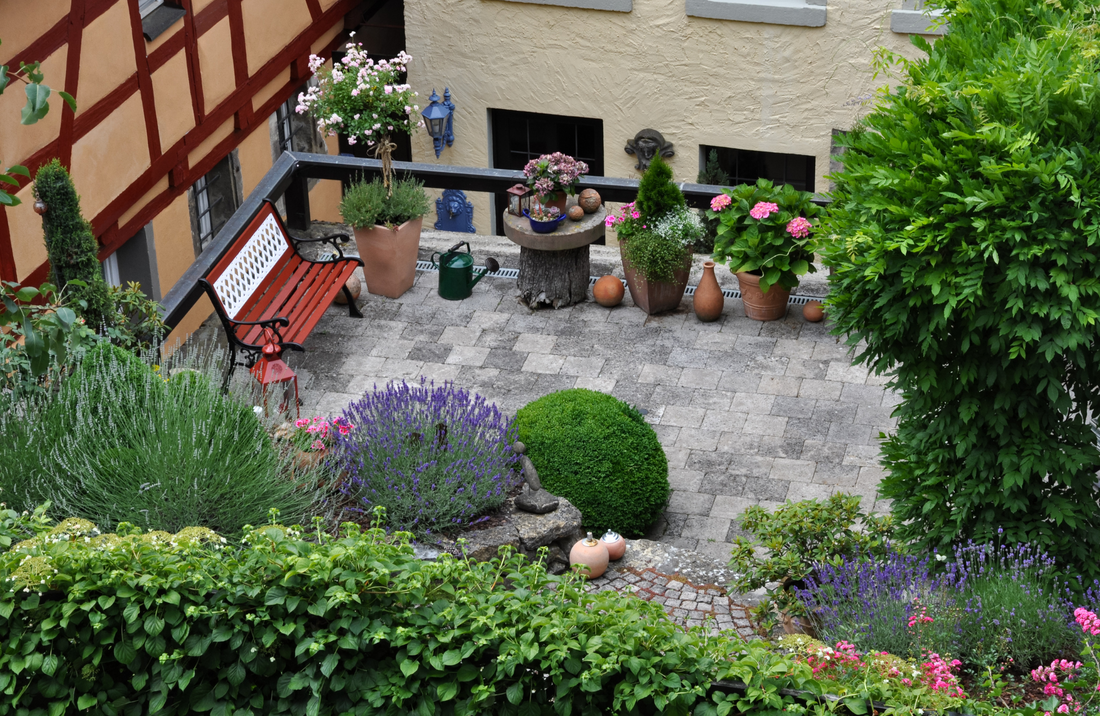
Urban Garden Glow-Up
How to Grow Green in the City 🌿
Urban gardening is transforming city life, turning rooftops, balconies, and windowsills into lush, productive green spaces. With cities expanding and environmental concerns growing, urban gardening is more than just a trend—it’s a sustainable solution. By creating your own mini garden, you’re not only getting fresh produce but also improving your environment, cutting down on waste, and building community. Ready to make your urban space greener? Let’s dive into some easy tips and hacks to help your garden thrive, no matter where you are.





Hacks for a Thriving Urban Garden
- Maximize Vertical Space: Think up, not out! Use wall planters, trellises, or hanging pots to grow plants vertically. Not only does this save space, but it also creates a stunning green wall in your urban environment.

- Start with Containers: Whether you have a balcony or a kitchen windowsill, container gardening is the way to go. Choose pots with good drainage, and you can grow anything from herbs to tomatoes!
- Compost Kitchen Scraps: Turn kitchen waste like fruit peels and coffee grounds into nutrient-rich compost. It’s eco-friendly and a great way to give your plants a natural boost.

- Choose Native Plants: Native plants are naturally adapted to your local environment, making them easy to grow and maintain. They often require less water and are resistant to pests—perfect for urban gardeners.
- Use Rainwater: Collect rainwater in barrels or containers to water your garden. It’s free, chemical-free, and helps conserve precious resources.

- Companion Planting: Plant certain crops together to boost growth and ward off pests. For example, basil near tomatoes not only enhances flavor but also keeps pests at bay.
- DIY Recycled Planters: Get creative by turning old items into planters. Think old tires, wooden crates, or plastic bottles! It’s a budget-friendly, eco-friendly way to add some personality to your garden.

Dos and Don’ts for Urban Gardening
DO:
- Plan Your Space Carefully: Consider sunlight, plant height, and the space each plant needs to grow.
- Water Efficiently: Water your plants early in the morning or late in the evening to minimize evaporation. Use self-watering systems for consistency.
- Maintain Healthy Soil: Enrich your soil with compost or organic fertilizers to keep your plants happy.
- Grow Edibles: Enjoy homegrown herbs, leafy greens, and veggies—it’s fresher, healthier, and eco-friendly!
- Stay Educated: Learn about urban gardening, attend workshops, or join online communities to grow your skills.
DON’T:
- Overcrowd Plants: Give your plants space to breathe and grow, avoiding competition for sunlight and nutrients.
- Use Harmful Chemicals: Skip synthetic pesticides and opt for organic alternatives to protect beneficial insects and the environment.
- Neglect Regular Care: Consistent watering, pruning, and pest control are essential for a healthy garden.
- Ignore Local Guidelines: Some cities have specific rules for urban gardening, so be sure to follow them.
- Get Discouraged: Gardening is a learning process—don’t be afraid to experiment and adapt!

Benefits of Urban Gardening
- Cut Food Miles: Grow your own food and reduce transportation emissions.
- Beautify Your Space: Green spaces make urban areas more vibrant and visually appealing.
- Boost Mental Health: Gardening is a great way to reduce stress and connect with nature.
- Enjoy Fresh Produce: Homegrown food is more nutritious and flavorful than store-bought options.
- Conserve Resources: Urban gardens use less water and energy than traditional farming.
- Support Biodiversity: Your garden attracts pollinators like bees and butterflies, boosting local ecosystems.
- Reduce Waste: Composting and repurposing materials help minimize waste and support a circular economy.
- Build Community: Urban gardens bring people together, creating shared green spaces and fostering connections.
- Learn Valuable Skills: Gardening teaches practical, sustainable living skills that can be passed on to others.
- Increase Property Value: A well-maintained garden can boost the appeal and value of your home.
Urban gardening isn’t just about growing plants—it’s about growing sustainability, community, and healthier living. With these tips, you’re ready to turn any urban space into a green oasis.
Ready to start your own urban garden? Let’s dig in and grow a greener future together!
